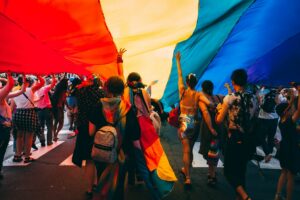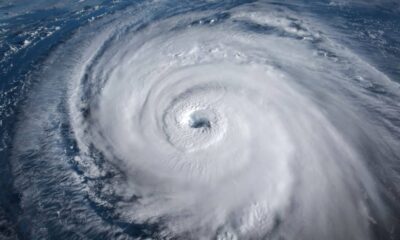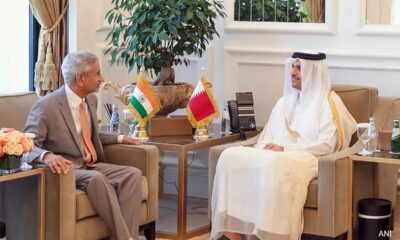Business
LGBTQI+ issues are economic issues

LGBTQI+ issues are seen as secondary to economic issues. This concern is problematic, but it has roots. After all, the Philippine economy is not performing quite as hoped, with GDP growth of 5.7% in January-March 2024, lower than the 5.9% expected by economists and analysts.
As the country’s economic situation continues to worry ordinary Filipinos, it would be a grave mistake to disregard LGBTQI+ issues. Gender issues are inextricably linked to the economy. Discrimination against LGBTQI+ people not only denies them equal opportunities, but also hinders the country’s overall economic productivity and growth. Therefore, addressing LGBTQI+ issues in the workplace is not just a social justice issue; it is also an economic necessity.
LGBTQI+ INCLUSION AND ECONOMIC IMPACT
The economic impact of LGBTQI+ discrimination is difficult to measure and quantify. But studies, however limited, show that these consequences are profound. Discrimination in the workplace is a double-edged sword for the Philippines. First, it reflects the state’s inability to fulfill its international obligations of justice and equality. Second, it significantly limits national economic productivity by failing to integrate a vital part of the workforce.
Inclusive economies are more competitive, with diversity linked to more robust economic growth and greater job creation. For example, the 2018 Open For Business report found a significant correlation between LGBTQI+ inclusivity and the economic competitiveness of cities around the world, indicating that LGBTQI+ inclusion is often a key feature in leading cities with a robust global economic presence. The Organization for Economic Co-operation and Development (OECD) also supports this view and emphasizes that inclusive growth – economic growth that is distributed fairly across society – creates opportunities for all and contributes to social cohesion.
Inclusive growth is essential for sustainable development and the well-being of all citizens, whether they are part of the LGBTQI+ community or not. By recognizing diversity, government and private institutions, public or otherwise, can tap into a broader range of talents and perspectives.
WORKSHOP INCLUSION IN THE PHILIPPINES
The employment situation for LGBTQI+ individuals in the Philippines is marred by widespread discrimination at all stages of employment. LGBTQI+ people are often hired to be exploited because of certain freedoms attributed to them. One of these is the inability to legally marry, which leads to reduced benefit costs for companies and forced graveyard shifts or overtime. A specific case is the fact that trans and gender non-conforming individuals cannot legally change their names and gender markers. This lack of freedom drives them to seek work that informally recognizes them, even if these are insecure in nature.
LGBTQI+ people are also often relegated to stereotypical roles with lower wages, such as security guards for lesbians or beauticians for gay men. And while some industries are considered more inclusive than others, there is still some degree of gender bias. For example, Emmanuel David introduced the concept of “transsegregation,” where companies implement certain activities to differentiate trans employees from the rest of the company, such as parades and game shows. LGBTQI+ employees also often adopt roles that involve managing microaggressions and fulfilling extractive expectations without adequate recognition or compensation, essentially acting as a social lubricant to facilitate interpersonal interactions.
Some companies and industries in the Philippines are indeed pursuing inclusivity. But such a goal must be carefully qualified to avoid token inclusivity, or superficial gestures that do not translate into substantive changes in workplace culture. This is critical because while some companies are touted for their leniency on dress codes and gender expression, issues such as inadequate promotional opportunities, appearance controls, and mandatory participation of LGBTQI+ employees in PRIDE events for branding purposes abound.
A LITTLE BIT OF HOPE
However, recent trends offer a glimmer of hope. For example, the Philippine Financial & Inter-Industry Pride (PFIP) 2024 LGBTQ+ Workplace Inclusion Report highlights a shift toward greater diversity and inclusivity within the business community. This shift is not only a response to growing public support for LGBTQI+ rights, but also aligns with global best practices that recognize the value of workplace diversity as a driver of innovation and productivity.
Yet this progress is not universal. While some companies are exemplary of diversity and inclusion best practices, many Philippine companies still lack explicit anti-discrimination policies and comprehensive diversity, equity and inclusion (DE&I) training programs, as illustrated in the 2018 Stonewall Global Workplace Briefings and the 2018 Philippine Corporate SOGIE Diversity. & Inclusivity Index.
TOWARDS AN INCLUSIVE ECONOMY
The Philippine labor law lacks explicit protections for LGBTQI+ workers, making them vulnerable to discrimination. This gap must be closed.
Incorporating LGBTQI+ rights into the Philippine labor market is imperative for the country’s economic and social health. The moral and economic imperatives for inclusion are intertwined, with clear evidence that embracing diversity not only carries social justice obligations, but also catalyzes economic growth and innovation. Progress in some sectors shows potential; However, widespread changes are needed to ensure that the Philippines can fully utilize the talents and contributions of all its citizens, regardless of sexual orientation or gender identity.
Athena Charanne “Ash” R. Presto is a sociologist and policy advisor on gender and governance issues. She teaches at the Ateneo de Manila University Department of Political Science and the University of the Philippines Diliman Department of Sociology.











